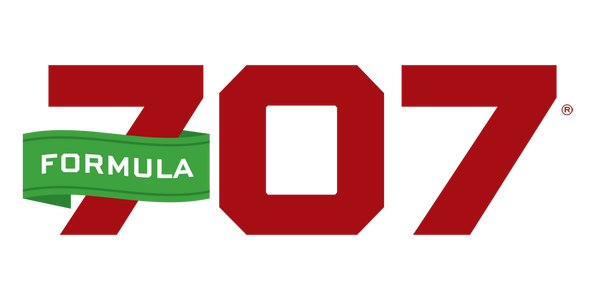Nutritional Needs for Hoof Health
There are several nutrients that have a significant impact on horse hooves. So if you want to improve hoof health, you need to make sure your horse gets sufficient supply of the following:- Protein – A horse’s hoof structure is primarily made of a protein known as keratin. And horses require a sufficient supply of proteins in their daily diet to create amino acids that facilitate hoof growth and healthy hooves.
 Source: Pixabay
You’ll need to provide your horse with an essential amino acid known as methionine, which can improve the hoof quality. But make sure you don’t go overboard with this as it can result in depleted levels of zinc, iron, and copper.
And as a result, your horse could suffer from conditions such as white line disease and crumbling horn. You can supply sufficient quantities of methionine through supplementation designed specifically to improve horse hoof health.
Source: Pixabay
You’ll need to provide your horse with an essential amino acid known as methionine, which can improve the hoof quality. But make sure you don’t go overboard with this as it can result in depleted levels of zinc, iron, and copper.
And as a result, your horse could suffer from conditions such as white line disease and crumbling horn. You can supply sufficient quantities of methionine through supplementation designed specifically to improve horse hoof health.
- Zinc – Zinc helps in ensuring proper keratin formation in your horse’s hooves. Without sufficient keratin in the hoof, it will become soft and brittle. Lots of hoof health supplements come with zinc.
- Essential Fatty Acids – Fatty acids help in maintaining proper moisture in the hoof structure, preventing it from becoming dry and brittle. In addition to grain, your horse can also obtain fatty acids from unprocessed grain oils and soybeans that are cooked whole.
 Source: Pxhere
Source: Pxhere
- Calcium and Phosphorus – Your horse also requires sufficient supply of calcium so that cells attach properly to the hoof wall and horn. And it should also get sufficient supply of phosphorus to maintain bone density. What’s crucial, however, is to maintain the right balance of these two nutrients.
- That’s because when your horse gets too much phosphorus, it may have trouble absorbing the calcium. This can result in weak and abnormal bones. Try to maintain a calcium/phosphorus ratio of 2.5:1 or less.
- Selenium – Selenium is an essential element for maintaining horse hoof health. But you need to be very careful in administering it because there are negative impacts for both excessive and insufficient supplies of the nutrient.
- Selenium deficiency has been known to cause cracked hooves and thick hoof walls. And excessive selenium intake can be very toxic, resulting in coronitis, hair loss, and coronary band bleeding. It’s best if you administer selenium under careful direction of your veterinarian.
- Biotin – Biotin is an essential vitamin that can contribute to healthier hooves, coat, and mane in horses. Although there are some variations in the effects of biotin, biotin has shown to improve hoof quality in horses that receive a balanced diet and are living in favorable conditions but still possess poor-quality hooves. The recommended quantity of biotin intake is about 15 to 20 mgs in a day.
Other Essential Practices to Improve Hoof Health
In addition to providing your horse with sufficient quantities of the above nutrients, you should consider other factors that can affect the nutritional supply of your horse and its hoof quality.- If your horse is already suffering from hoof problems, for instance, you should avoid feeding it bran. That’s because bran contains phytate, which has high phosphorus content.
- And as mentioned earlier, phosphorus can block calcium absorption and harm the hoof quality. If your horse requires bran to regulate stool consistency, you can replace it with soaked sugar beet pulp. Or if you need it for preventing sand colic, you can use psyllium instead.
- If you’re caring for an older horse, it’s important to remember that the horse may experience poor hoof health because of some age-related issues. For instance, older horses often struggle to chew their foods properly. And they don’t metabolize nutrients as effectively as younger horses. So you need to take special care of them to ensure that they get the essential nutritional supply for hoof health.
 Source: Freegreatpicture
In case of a senior horse that’s almost toothless, you could try feeding it steam-rolled oats, ground hay, etc. which are easier to chew. And if your horse is unable to chew properly, make sure you have its teeth checked by your veterinarian.
Source: Freegreatpicture
In case of a senior horse that’s almost toothless, you could try feeding it steam-rolled oats, ground hay, etc. which are easier to chew. And if your horse is unable to chew properly, make sure you have its teeth checked by your veterinarian.
- It’s crucial that you limit supplements to only one unless advised otherwise by a veterinarian or a nutritionist. When fed with other supplements, some supplements may result in over-supplementation of certain nutrients.
- Have your horse checked for underlying health conditions such as Cushing’s disease and Metabolic Syndrome that may affect the way they respond to fructans in grass. So if your horse suffers from one of these conditions, feed containing large quantities of soluble carbohydrates of sugars can trigger laminitis.
- Avoid feeding salt and trace minerals in combined form. This can be dangerous because horses can’t easily shed trace minerals, which could accumulate to toxic levels. Opt for free-choice loose salt instead of block salt.
- Block salts are most suited for cattle with rough tongues, but horses have a smoother tongue that may be unable to lick the desired quantity of salt from blocks. So if your horse is depleted of salt, it may resort to biting off a chunk of the block, which will create excessive amounts of hoof-destructive urine.

